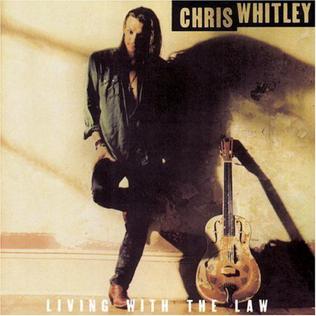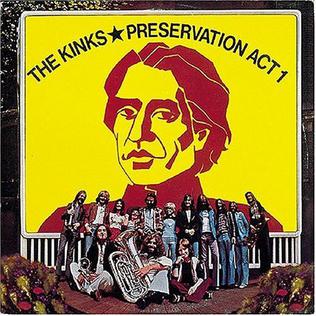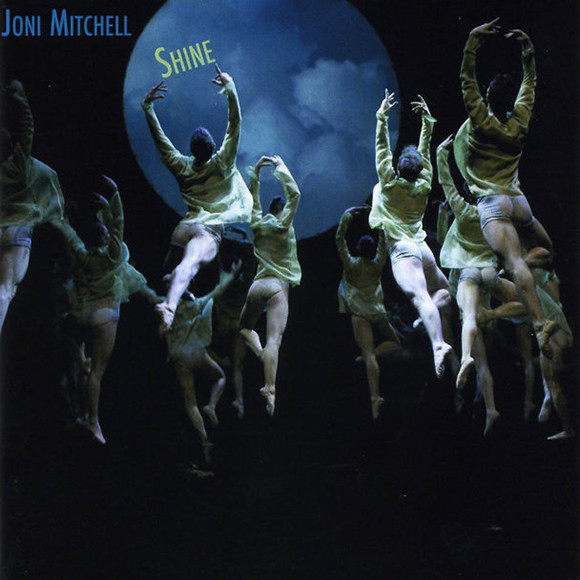The actions of a few Senators’ wives gave Frank his biggest public exposure since the “Valley Girl” single. Appalled that these women were using their privileged access to possible legislation that would censor musicians, and its proximity to a proposed home-taping tax, he put on a nice suit and testified before the Senate (alongside John Denver and Dee Snider) to point the finger of shame at everyone involved. He wasn’t touring anyway, so the fight against the PMRC gave him something to do. (He’d been labeling his albums himself already anyway.)
It remains unknown whether the album titled Frank Zappa Meets The Mothers Of Prevention would have appeared in this or any format, but it did, and that was the context. Much of the album is instrumental, with the sampling capabilities of the Synclavier (his current pet noisemaker) to the fore.
Side one is a mishmash. “We’re Turning Again” is mildly melodic, but mostly notable for quoting various classic rock songs by the (mostly dead) singers they lampoon, perpetuating the Cass Elliot ham sandwich rumor, and Ike Willis’ impressions of Walter Cronkite, Bob Dylan, and Thing-Fish. The instrumental “Alien Orifice” has a mild TV cop show theme mood, but at least it’s got a decent guitar solo, sorely lacking on this album. “Yo Cats” is a lounge jazz tirade against schooled musicians, again crooned by Ike, while “What’s New In Baltimore?” is a more enjoyable instrumental, with a lengthy guitar solo, once again resembling the closing theme to Saturday Night Live.
Side two is bookended by two Synclavier instrumentals of mild interest, “Little Beige Sambo” and “Aerobics In Bondage”. In between is the centerpiece of the album, “Porn Wars”. Here various soundbites of the Senators from the PMRC hearing are quoted, sampled, ridiculed, and interspersed with Synclavier music, snippets of the people in the piano from Lumpy Gravy and yet another appearance by Thing-Fish. Outside of Frank’s voice, the one that truly stands out today is that of Al Gore; we had no idea he’d be vice president within ten years, and almost president in fifteen. A couple Senators sound like Foghorn Leghorn, and one goes to far as to allege Frank’s Constitutional ignorance without letting him reply that, in fact, he’d always gotten top marks in his high school civics class.
Not wanting to bore overseas listeners with the silly antics of the American government, the album was released elsewhere in a “European version” that dropped “Porn Wars” in favor of three exclusive tracks. Two of these were tacked onto the following year’s CD in the U.S., which also rejigged the sequence slightly. “I Don’t Even Care” features Johnny “Guitar” Watson yelling over a live jam, while “One Man, One Vote” is another Synclavier piece. (The third track finally appeared when the album was reissued in the 1995 catalog overhaul, and it’s remained there ever since. “H.R. 2911” was named after the home taping bill Frank suspected was tied up with all the PMRC business, and consists of some of the Synclavier music heard under “Porn Wars”, with lots of snorks as percussion.)
From a musical standpoint, Frank Zappa Meets The Mothers Of Prevention is mildly interesting but not essential. For students of history, his testimony is in the public record, can be watched online, and can also be read in The Real Frank Zappa Book. He continued to toy with the material at home, of course. Compiled in 1989 but not released for 23 years, the Understanding America compilation included “Porn Wars Deluxe”, twice the length of the original version thanks to the inclusion of musical excerpts from the Zappa catalog and even more Senatorial soundbites. 2010’s “Congress Shall Make No Law…” presented his full Senate testimony as well as a later appearance before Maryland state legislature, broken up by Synclavier music and samples of his nephew burping.
Meanwhile, the record industry did indeed adopt a generic “parental advisory—explicit lyrics” label that was soon widely lampooned and kept certain albums out of Wal-Mart, while making it easier for kids to find albums sure to piss off their elders. And yet somehow, some way, the world kept turning.
Frank Zappa Frank Zappa Meets The Mothers Of Prevention (1985)—2
1986 Rykodisc CD: same as 1985, plus 2 extra tracks
1995 Rykodisc CD: same as 1986, plus 1 extra track

:format(jpeg):mode_rgb():quality(90)/discogs-images/R-8435074-1471273481-7467.jpeg.jpg)





